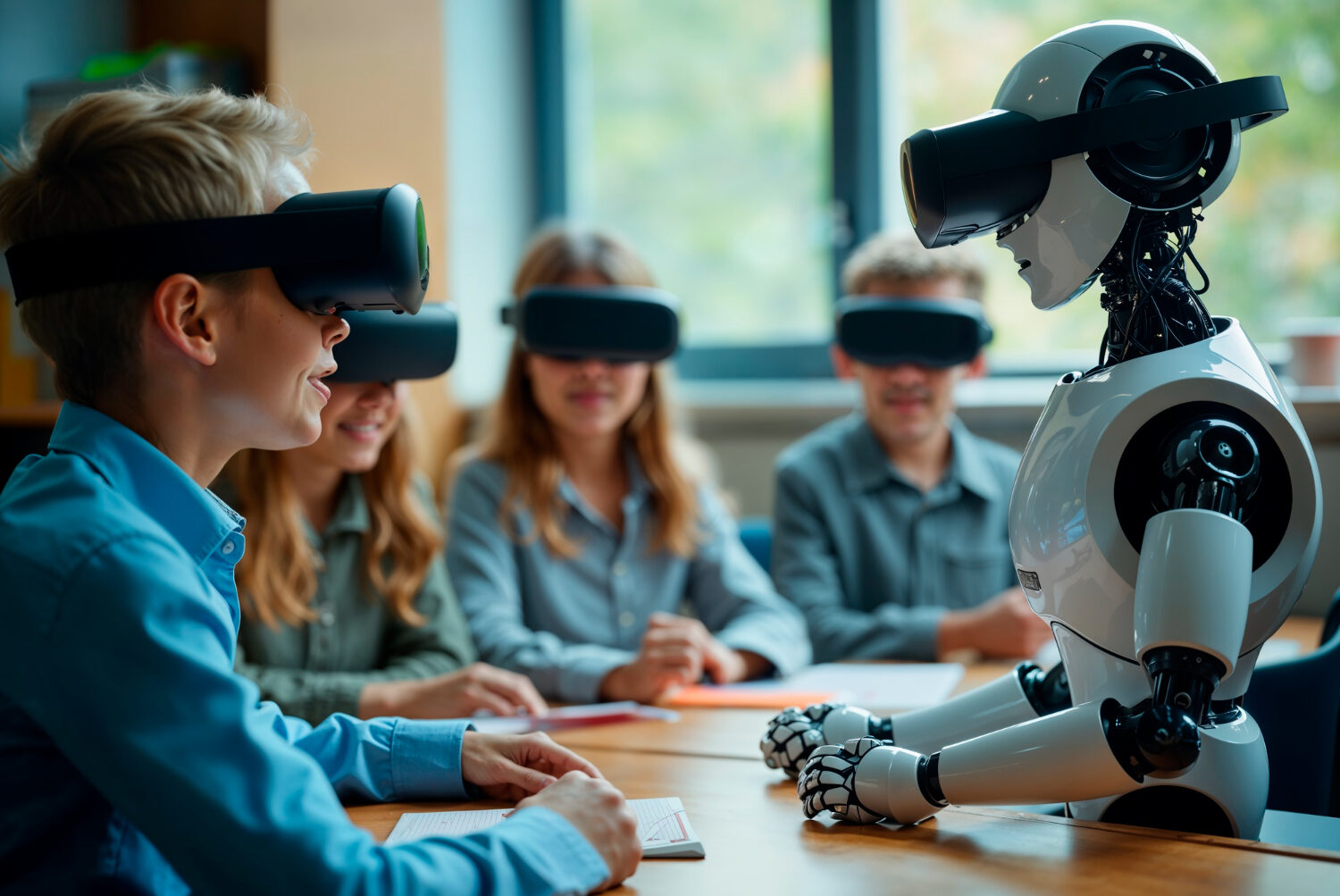Metaverse Comprehensive Training
Metaverse Comprehensive Training
Training Objectives:
To provide comprehensive technical training in the Metaverse, empowering participants with the knowledge and skills needed to understand, develop, and leverage Metaverse technologies effectively.

Comprehensive Training Plan:
Our training has three steps.
- Training Curriculum
- Training Delivery
- Evaluation and Certification
1.Training Curriculum:
- Introduction to the Metaverse
- Building Virtual Worlds
- Augmented Reality (AR) and Virtual Reality (VR)
- Social Networking in the Metaverse
- Commerce and Economy in the Metaverse
- Metaverse Interoperability and Standards
- Ethics and Governance in the Metaverse
- Practical Projects and Capstone
– Definition and evolution of the Metaverse: from science fiction to reality.
– Key concepts and components: virtual worlds, augmented reality, virtual reality, and spatial computing.
– Applications and use cases: gaming, social networking, education, commerce, and beyond.
– Overview of virtual world platforms: Unity, Unreal Engine, Roblox, and others.
– Basics of 3D modeling and animation: creating assets for virtual environments.
– Design principles for immersive experiences: user interface, interaction design, and spatial storytelling.
– Hands-on exercises in building and customizing virtual worlds using leading development tools.
– Introduction to AR and VR technologies: hardware devices, sensors and input mechanisms.
– Developing AR applications: marker-based tracking, image recognition and spatial mapping.
– Creating VR experiences: locomotion, presence and immersion techniques.
– Practical projects using AR/VR development kits such as ARCore, ARKit, Oculus and HTC Vive.
– Overview of social VR platforms: Rec Room, AltspaceVR, VRChat and Facebook Horizon.
– Designing social experiences: avatars, presence, gestures and voice chat.
– Community management and moderation: fostering inclusivity, safety and engagement.
– Collaborative projects to create and customize social spaces within virtual environments.
– Virtual economies: digital assets, virtual currencies and in-app purchases.
– Creating and monetizing content: virtual goods, experiences and services.
– Marketplaces and platforms for buying, selling and trading virtual assets.
– Business models and opportunities for entrepreneurs in the Metaverse.
– Open standards and protocols for interoperability between virtual worlds and platforms.
– Metaverse infrastructure: decentralized networks, blockchain technology and distributed ledgers.
– Cross-platform development: enabling seamless experiences across different devices and environments.
– Case studies and best practices in Metaverse interoperability and standards adoption.
– Ethical considerations in virtual environments: privacy, identity and digital citizenship.
– Governance models and regulations for the Metaverse: user rights, content moderation and platform accountability.
– Diversity, equity, and inclusion in the Metaverse: addressing bias, harassment and discrimination.
– Responsible design and development practices: designing for safety, accessibility and well-being.
– Participants will work on hands-on projects throughout the training program to apply the concepts and techniques learned.
– A capstone project will allow participants to design and develop a Metaverse application or experience, integrating multiple technologies and components.
2.Training Delivery:
– The training program will be delivered through a combination of lectures, interactive workshops, coding labs and project-based learning.
– Experienced instructors with expertise in Metaverse development and design will lead the training sessions.
– Participants will have access to development environments, tools and resources for experimentation and practice.
3.Evaluation and Certification:
– Continuous assessment will be conducted throughout the training program to evaluate participants’ understanding and progress.
– A final project presentation or demonstration will assess participants’ proficiency and readiness to apply Metaverse technologies in real-world scenarios.
– Participants who successfully complete the training program will receive a certificate of completion.
By providing this comprehensive technical training in the Metaverse, we aim to empower participants with the knowledge and skills needed to harness the potential of this emerging technology and contribute to advancements in technology, innovation and digital experiences.

